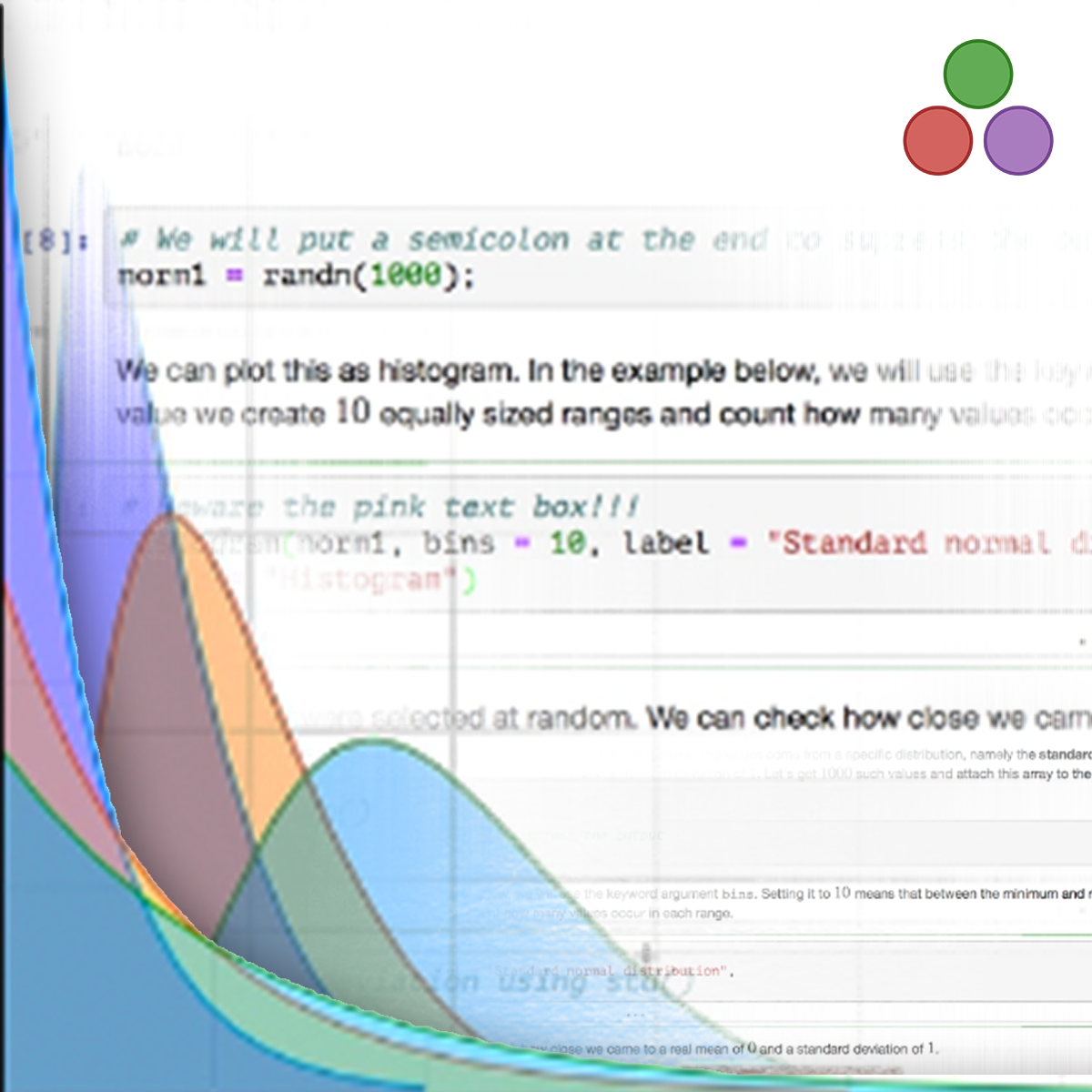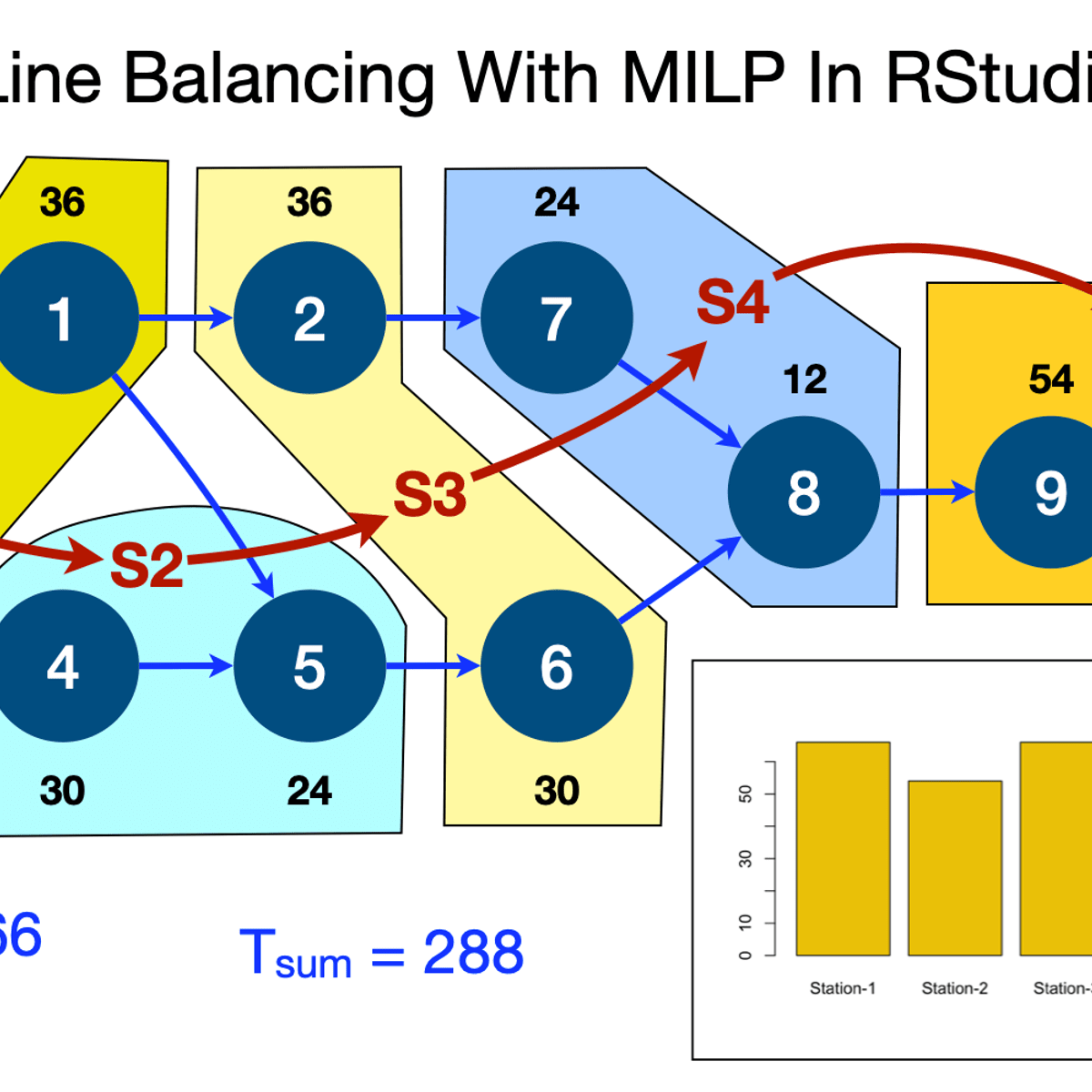Mathematician
Mathematician
A mathematician is a professional who uses mathematical theory, computational techniques, algorithms, and the latest computer technology to solve economic, scientific, engineering, physics, and business problems. At its core, mathematics is the study of quantity, structure, space, and change. Mathematicians explore these concepts, seeking out patterns, formulating new conjectures, and establishing truth through rigorous deduction from appropriately chosen axioms and definitions.
Working as a mathematician can be deeply engaging, offering the chance to tackle complex abstract problems or apply mathematical principles to tangible real-world challenges. The field provides intellectual stimulation through logical reasoning, pattern discovery, and the elegance of mathematical proof. Furthermore, the skills developed are highly transferable, opening doors in diverse sectors like technology, finance, research, and education.
Overview of a Mathematician's Role
Understanding the world through the lens of mathematics involves abstraction, logical reasoning, and quantitative analysis. Mathematicians are experts in these areas, applying their skills across a surprisingly broad spectrum of activities.
Defining the Role and Responsibilities
Mathematicians develop new mathematical principles, deepen understanding of existing principles, and apply mathematical techniques to solve practical problems. Their work often involves creating mathematical models to analyze data, interpret phenomena, and make predictions. Daily tasks might include reading and understanding research papers, developing proofs, writing algorithms, analyzing data sets, collaborating with scientists or engineers, and communicating findings through reports or presentations.
The core responsibility lies in rigorous thinking and precise communication. Whether proving a theorem or modeling a financial market, clarity, accuracy, and logical soundness are paramount. They must be adept at identifying the essential structure within complex situations and representing it mathematically.
Ultimately, a mathematician's role is to advance mathematical knowledge or use that knowledge to provide insight and solutions in other domains. This requires a blend of creativity, persistence, and analytical prowess.
Distinguishing Pure and Applied Mathematics
Mathematics is often broadly divided into two categories: pure and applied. Pure mathematics focuses on abstract concepts and theoretical development, driven by intellectual curiosity and the intrinsic beauty of mathematics itself. Pure mathematicians explore foundational questions in areas like algebra, topology, and number theory, often without immediate concern for practical applications.
Applied mathematics, conversely, focuses on developing and utilizing mathematical tools to solve specific problems in science, engineering, business, and other fields. Applied mathematicians might work on optimizing industrial processes, modeling fluid dynamics, analyzing financial risks, or developing encryption algorithms. The distinction isn't always sharp, as pure mathematical discoveries often find unexpected applications later, and applied problems can inspire new theoretical research.
Both branches require deep mathematical understanding and rigorous proof techniques. Many mathematicians work across both areas, drawing inspiration from abstract theory to solve practical problems or using real-world phenomena to motivate theoretical exploration.
These foundational courses explore the mindset and basic tools common to many areas of mathematics.
Common Industries and Employers
Mathematicians find employment in diverse sectors. Academia remains a significant path, with roles in universities involving teaching and research. Government agencies, particularly national security organizations like the NSA and research labs like Sandia or Los Alamos, are major employers, utilizing mathematicians for cryptography, data analysis, and modeling complex systems.
The private sector offers numerous opportunities. The finance industry employs quantitative analysts (quants) to develop trading algorithms, price derivatives, and manage risk. Tech companies hire mathematicians for algorithm development, machine learning research, data science, and cryptography. Consulting firms, aerospace companies, pharmaceutical manufacturers, and market research firms also value the analytical skills of mathematicians.
Essentially, any industry dealing with large amounts of data, complex systems, or requiring sophisticated modeling and optimization can benefit from a mathematician's expertise. The versatility of mathematical training opens doors across a wide industrial landscape.
Dispelling Myths: The Reality of the Profession
A common myth portrays mathematicians as solitary geniuses scribbling equations on blackboards, disconnected from the real world. While deep concentration is necessary, modern mathematics is often highly collaborative. Mathematicians frequently work in teams, especially in applied settings, interacting with experts from other fields.
Another misconception is that mathematics is solely about computation or "number crunching." While computation is a tool, the essence lies in abstract reasoning, problem-solving, and logical structure. Creativity plays a significant role in formulating problems, devising proof strategies, and developing novel models.
Finally, some believe you must be a prodigy to succeed. While aptitude is important, dedication, persistence, rigorous training, and a passion for the subject are equally crucial. Success comes from hard work and continuous learning, not just innate talent. The field is challenging, but accessible to those willing to invest the effort.
Formal Education Pathways
A career as a mathematician typically requires extensive formal education. The path usually involves undergraduate and often graduate studies, focusing on rigorous mathematical training and research.
Undergraduate Foundations
A bachelor's degree in mathematics is the standard starting point. Undergraduate programs provide a broad foundation, covering core areas like calculus, linear algebra, differential equations, abstract algebra, real analysis, and probability/statistics. Strong performance in these foundational courses is essential.
While a pure mathematics major is common, related fields like statistics, physics, computer science, or engineering with a strong mathematical component can also serve as a foundation, especially for applied roles. Coursework often includes programming, as computational skills are increasingly important.
Prospective mathematicians should seek out challenging coursework, engage in undergraduate research opportunities if available, and build strong relationships with faculty mentors. A solid undergraduate record is crucial for admission into competitive graduate programs.
These courses cover essential undergraduate topics like calculus and precalculus, providing a strong base for further study.
Understanding core concepts like functions is fundamental.
Graduate Studies: Master's vs. PhD
For many mathematician roles, particularly in research or academia, a graduate degree is required. A Master's degree (M.S. or M.A.) typically takes 1-2 years and provides more specialized knowledge. It can qualify individuals for certain industry positions, teaching roles at community colleges, or serve as a stepping stone to a PhD.
A Doctor of Philosophy (PhD) is the terminal degree, usually requiring 4-6 years beyond the bachelor's degree. PhD programs involve advanced coursework, comprehensive exams, and original research culminating in a doctoral dissertation. This path is standard for academic careers and many high-level research positions in government or industry.
Choosing between a Master's and a PhD depends on career goals. A PhD signifies deep expertise and the ability to conduct independent research, essential for academic and leading research roles. A Master's offers advanced training suitable for many applied positions and some teaching roles.
These books delve into number theory, a core area often explored in graduate studies.
The Role of Research and Thesis
Research is central to graduate study in mathematics, especially at the PhD level. Students work closely with a faculty advisor to identify a research topic, delve into existing literature, and contribute original work to the field. This involves formulating conjectures, developing proofs, or creating and analyzing new mathematical models.
The culmination of PhD research is the doctoral dissertation (or thesis), a substantial document detailing the student's original contribution to mathematical knowledge. The thesis must be defended orally before a committee of faculty experts. This process demonstrates the student's mastery of their specialized area and their ability to conduct independent research.
Even Master's programs often include a research component, such as a thesis or capstone project, though typically less extensive than a PhD dissertation. Research experience hones critical thinking, problem-solving, and communication skills vital for any mathematician.
Learning how to construct proofs is a fundamental skill developed through research and thesis work.
Postdoctoral Positions and Academic Trajectories
After completing a PhD, aspiring academics typically pursue postdoctoral research positions ("postdocs"). These are temporary research-focused roles, often lasting 1-3 years, allowing recent graduates to deepen their expertise, publish research, gain teaching experience, and build their professional network before seeking permanent faculty positions.
The academic job market is highly competitive. Postdocs work intensely to produce high-quality research and demonstrate their potential as independent scholars and educators. Success in a postdoc can lead to tenure-track assistant professor positions at universities or colleges.
The academic career path involves progressing through faculty ranks (Assistant, Associate, Full Professor), balancing research, teaching, and service responsibilities. It offers intellectual freedom but demands high productivity and navigating the pressures of securing grants and achieving tenure.
Essential Mathematical Competencies
Success as a mathematician hinges on a robust set of technical and soft skills. Mastery extends beyond knowing theorems to encompass analytical thinking, computational fluency, and effective communication.
Core Technical Skills
A deep understanding of core mathematical areas is non-negotiable. This includes real and complex analysis (limits, continuity, differentiation, integration), abstract algebra (groups, rings, fields, vector spaces), linear algebra (matrices, eigenvalues, vector spaces), topology, differential equations, probability theory, and statistics. Mastery involves not just knowing definitions and theorems, but understanding their connections and how to apply them.
Proof-writing ability is fundamental. Mathematicians must construct rigorous, logical arguments to establish mathematical truths. This requires precision, clarity, and the ability to anticipate and address potential counterarguments. Familiarity with various proof techniques (direct proof, contradiction, induction) is essential.
Strong problem-solving skills are paramount. This involves analyzing problems, identifying relevant mathematical structures, devising solution strategies, and executing them accurately. It often requires creativity and the ability to think abstractly.
These courses cover fundamental areas like algebra and calculus, crucial for building technical proficiency.
Computational Proficiency
In addition to theoretical knowledge, modern mathematicians increasingly need computational skills. Proficiency in programming languages commonly used in scientific computing, such as Python, R, MATLAB, or Julia, is often required, especially in applied fields.
Familiarity with mathematical software packages for symbolic computation (like Mathematica or Maple), statistical analysis (like R or SAS), and numerical computation (like MATLAB or NumPy/SciPy in Python) is highly valuable. These tools allow mathematicians to perform complex calculations, visualize data, simulate models, and test conjectures.
Understanding numerical methods and algorithms is also important for approximating solutions to problems that cannot be solved analytically. This includes topics like numerical integration, solving differential equations numerically, and optimization algorithms.
These courses introduce computational tools and programming relevant to mathematical work.
These books offer insights into numerical methods and computational techniques.
Essential Soft Skills
Technical expertise alone is insufficient. Mathematicians need strong soft skills. Communication is crucial for explaining complex ideas clearly and concisely, both orally and in writing, to diverse audiences (colleagues, clients, students, policymakers). This includes writing research papers, giving presentations, and collaborating effectively.
Problem-solving extends beyond technical execution; it involves critical thinking, creativity in framing questions, and persistence in tackling difficult challenges. Mathematicians must be able to break down complex problems into manageable parts and approach them systematically.
Collaboration skills are vital, as much mathematical work, especially in industry and applied research, is done in teams. This requires effective teamwork, adaptability, and the ability to integrate mathematical insights with expertise from other domains.
Commitment to Lifelong Learning
Mathematics is a constantly evolving field. New theories emerge, computational tools advance, and applications expand into new areas. Consequently, a commitment to lifelong learning is essential for staying current and effective throughout one's career.
This involves regularly reading research journals, attending conferences and workshops, taking additional courses (potentially through platforms like OpenCourser), and engaging with the broader mathematical community. Mathematicians must be intellectually curious and proactive in acquiring new knowledge and skills.
For those considering a career change into mathematics, this commitment is particularly important. Building the necessary foundation requires sustained effort, but the intellectual rewards and diverse career options can make it a worthwhile pursuit. Embrace the challenge and be prepared for continuous intellectual growth.
Career Opportunities for Mathematicians
A strong mathematical background opens doors to a wide array of intellectually stimulating and often lucrative career paths in academia, industry, government, and beyond.
Academic vs. Industry Pathways
The traditional path for PhD mathematicians is academia, involving research and teaching at universities. Academic careers offer intellectual freedom and the opportunity to contribute to fundamental knowledge, but face intense competition for tenure-track positions.
Industry offers diverse roles where mathematical skills are applied to solve practical business, scientific, or engineering problems. These positions often provide higher salaries and faster career progression than academia but may involve less research autonomy. Common industry roles include data scientist, quantitative analyst, operations research analyst, cryptographer, and software engineer.
The choice depends on personal priorities regarding research focus, work environment, salary expectations, and work-life balance. Increasingly, mathematicians move between academia and industry throughout their careers.
Emerging Fields and High-Demand Areas
Several fields heavily rely on advanced mathematical concepts and are experiencing high growth. Data science and machine learning require expertise in statistics, linear algebra, optimization, and probability to develop algorithms for analyzing vast datasets and building predictive models.
Quantitative finance employs mathematicians to create sophisticated models for pricing financial instruments, managing risk, and developing algorithmic trading strategies. This field demands strong skills in stochastic calculus, probability, and numerical methods.
Cryptography, essential for cybersecurity and secure communications, relies heavily on number theory and abstract algebra. As digital security becomes increasingly critical, demand for cryptographers in government and the private sector remains strong.
Other growing areas include computational biology, operations research, logistics optimization, and scientific computing, all of which leverage mathematical modeling and analysis.
Consider exploring related careers demanding strong analytical skills.
Government and Research Institution Roles
Governments are major employers of mathematicians. National security agencies (like the NSA in the U.S.) hire extensively for cryptography and data analysis. National laboratories (e.g., Sandia National Laboratories, Lawrence Livermore) employ mathematicians for modeling complex physical systems related to energy, defense, and climate change.
Statistical agencies (like the U.S. Census Bureau or Bureau of Labor Statistics) require mathematicians and statisticians for survey design, data analysis, and economic modeling. Other agencies, from NASA to the NIH, also employ mathematicians for specialized research and analysis.
Non-profit research institutions and think tanks also offer opportunities, often focusing on policy analysis, economic modeling, or scientific research requiring quantitative expertise. These roles often bridge the gap between academic research and practical application.
Entrepreneurial Ventures
While less common than academic or industry roles, some mathematicians leverage their skills to start their own companies. This might involve developing specialized software, offering consulting services in areas like data analysis or quantitative finance, or creating novel technological solutions based on mathematical insights.
Entrepreneurship requires not only technical expertise but also business acumen, risk tolerance, and leadership skills. However, the ability to identify quantitative challenges and develop innovative solutions can form the basis of a successful venture.
Examples include founding quantitative hedge funds, developing specialized algorithms for specific industries, or creating educational platforms focused on mathematics and data science. A strong mathematical foundation combined with market understanding can create unique entrepreneurial opportunities.
Tools and Technologies in Modern Mathematics
The practice of mathematics, particularly in applied settings, relies heavily on a variety of computational tools and technologies that enhance analysis, visualization, and collaboration.
Essential Software Tools
Symbolic computation systems like Mathematica, Maple, or SageMath are invaluable for performing complex algebraic manipulations, solving equations symbolically, and exploring mathematical structures without tedious manual calculation. They allow mathematicians to focus on conceptual understanding and strategy.
Statistical software packages such as R, SAS, SPSS, or Python libraries (like Pandas, NumPy, SciPy, Statsmodels) are essential for data analysis, statistical modeling, and visualization. Proficiency in at least one statistical environment is crucial for roles involving data.
Numerical computing environments like MATLAB, Octave, or Python with NumPy/SciPy enable mathematicians to implement algorithms, solve differential equations numerically, perform linear algebra operations, and simulate complex systems.
These courses introduce software widely used in mathematical and scientific computing.
These books cover numerical methods often implemented using these software tools.
High-Performance Computing (HPC)
For computationally intensive problems, such as large-scale simulations, complex modeling, or analyzing massive datasets, mathematicians may need access to high-performance computing (HPC) resources. This involves using supercomputers or computer clusters with parallel processing capabilities.
Working with HPC requires understanding parallel programming models (like MPI or OpenMP) and optimizing code for efficient execution on distributed or shared-memory architectures. While not all mathematicians require deep HPC expertise, familiarity with the concepts can be advantageous, especially in scientific computing and big data analysis.
Access to HPC resources is typically provided by universities, government labs, or large corporations engaged in cutting-edge research and development.
Collaboration and Version Control
Mathematical research and application often involve collaboration. Tools that facilitate shared work are essential. Version control systems like Git, often used with platforms like GitHub or GitLab, allow teams to manage code development, track changes, and collaborate on software projects effectively.
Document preparation systems, particularly LaTeX, are standard for writing mathematical papers, reports, and theses due to their superior handling of complex equations and formatting. Collaborative writing platforms like Overleaf allow multiple users to work on LaTeX documents simultaneously.
Shared notebooks (e.g., Jupyter Notebooks) and communication platforms (like Slack or Teams) also play a role in facilitating day-to-day collaboration among mathematicians and their colleagues in other fields.
Emerging AI Applications
Artificial intelligence (AI) and machine learning (ML) are increasingly impacting mathematics. AI tools are being developed to assist with theorem proving, conjecture generation, and symbolic computation, potentially accelerating mathematical discovery. Understanding the mathematical foundations of AI/ML (linear algebra, probability, calculus, optimization) is becoming crucial.
Conversely, mathematical expertise is vital for advancing AI research itself, developing more robust algorithms, understanding their limitations, and ensuring ethical deployment. Mathematicians are well-positioned to contribute to both the application and theoretical development of AI.
While AI is unlikely to replace mathematicians, it is becoming a powerful tool in their toolkit and reshaping certain aspects of mathematical research and application.
These courses provide introductions to AI concepts relevant to mathematically inclined learners.
Global Landscape for Mathematicians
Mathematics is a universal language, and the community of mathematicians is inherently international. Opportunities and collaborations span the globe, influenced by research funding, institutional strengths, and immigration policies.
Geographic Hubs for Research
Certain regions and institutions have emerged as major international hubs for mathematical research, attracting talent from around the world. Historically, Europe (particularly France, Germany, UK) and North America (USA, Canada) have hosted many leading departments and research institutes.
In recent decades, significant investments have bolstered mathematical research in parts of Asia (e.g., China, Japan, South Korea, Singapore, India) and other regions like Israel and Australia. Prestigious universities and dedicated research centers in these areas contribute significantly to the global mathematical landscape.
These hubs often host major conferences, workshops, and visitor programs, fostering international exchange and collaboration. However, strong mathematical research occurs in institutions worldwide, not just concentrated in a few locations.
Trends in Cross-Cultural Collaboration
International collaboration is a hallmark of modern mathematics. Researchers frequently co-author papers with colleagues from different countries, facilitated by email, video conferencing, and collaborative software. International conferences and research visits provide crucial opportunities for face-to-face interaction and idea exchange.
Funding agencies increasingly support international collaborative projects, recognizing that diverse perspectives can lead to breakthroughs. Global challenges, such as climate change or pandemics, also necessitate international cooperation among mathematicians and scientists to develop effective models and solutions.
This global interconnectedness enriches the field, allowing for the rapid dissemination of ideas and the pooling of expertise across borders. Young mathematicians benefit greatly from engaging with this international community.
Immigration and Mobility
The global nature of mathematics means many researchers and students pursue opportunities outside their home countries. PhD programs and postdoctoral positions often attract international applicants, and faculty positions are frequently filled through international searches.
Navigating immigration policies and visa requirements is a practical reality for mathematicians seeking international study or employment. Policies vary significantly by country and can influence career decisions and mobility. Universities and research institutions typically provide support for international scholars, but understanding the process is important.
The ability and willingness to be mobile can open up broader career opportunities, allowing mathematicians to access leading research environments and diverse job markets worldwide.
Funding Landscapes Across Regions
The availability and sources of funding for mathematical research vary considerably across different countries and regions. Government funding agencies (like the National Science Foundation in the US or the European Research Council) are major sources, supporting both individual researchers and larger projects.
Private foundations, industry partnerships, and university endowments also contribute to research funding. The level of investment in basic vs. applied mathematics can differ, influencing research priorities and opportunities in specific areas.
Understanding the funding landscape in different regions is important for researchers planning their careers, particularly those seeking grants or establishing research groups. Competition for funding is often intense globally.
Ethical Considerations in Mathematics
While often viewed as purely abstract, mathematics and its applications carry significant ethical implications that practitioners must consider.
Responsible AI Development
As mathematicians contribute to developing AI algorithms, they share responsibility for their societal impact. This includes addressing issues of bias embedded in data or algorithms, which can lead to unfair or discriminatory outcomes in areas like hiring, loan applications, or criminal justice.
Ensuring transparency and interpretability ("explainability") of AI models is another ethical challenge. Mathematicians can contribute to developing methods that make AI decision-making processes more understandable and accountable.
The potential for AI to automate jobs or be used for malicious purposes also raises ethical questions that require careful consideration by developers and policymakers alike.
Cryptography and Privacy Concerns
Cryptography, underpinned by mathematical principles like number theory, is essential for securing digital communications and protecting privacy. However, the same tools can be used by malicious actors or for pervasive surveillance.
Mathematicians working in cryptography face ethical dilemmas regarding the development of unbreakable encryption ("going dark") versus providing access for law enforcement ("backdoors"). Balancing security needs with privacy rights and lawful access is a complex societal issue with mathematical dimensions.
The security of cryptographic systems relies on the presumed difficulty of certain mathematical problems. Advances in mathematics or computing (like quantum computing) could potentially break existing encryption, necessitating ongoing research into new, secure methods.
Military and Defense Applications
Mathematical modeling and analysis play crucial roles in military applications, from designing weapons systems and optimizing logistics to breaking codes and analyzing intelligence data. This presents ethical considerations for mathematicians whose work contributes to defense or warfare.
Individuals must grapple with the potential consequences of their work and decide whether contributing to military applications aligns with their personal values. This debate has a long history within the scientific and mathematical communities.
Transparency about funding sources and the potential dual-use nature of research (having both civilian and military applications) are important aspects of navigating these ethical complexities.
Preventing Algorithmic Bias
Algorithms used in decision-making systems (e.g., for loan approvals, parole recommendations, content filtering) can perpetuate or even amplify existing societal biases if not carefully designed and audited. Mathematicians and statisticians play a key role in identifying and mitigating these biases.
This involves developing fairness metrics, designing algorithms that explicitly account for fairness constraints, and rigorously testing models for biased outcomes across different demographic groups. It requires an interdisciplinary approach, combining mathematical expertise with social science perspectives.
Promoting fairness and equity in algorithmic systems is an increasingly important ethical responsibility for those developing and deploying these powerful mathematical tools.
Career Progression and Advancement
A career in mathematics offers various pathways for growth and specialization, both within academia and across different industries.
Typical Entry-Level Positions
With a bachelor's degree, entry-level roles might include data analyst, research assistant, actuarial trainee, or positions in software development or quality assurance requiring strong analytical skills. Some high school teaching positions may also be accessible.
A Master's degree opens doors to more specialized roles like operations research analyst, statistician in government or industry, data scientist, or instructor positions at community colleges. These roles often involve more independent analysis and modeling.
A PhD typically leads to postdoctoral research positions or entry-level assistant professor roles in academia. In industry or government, PhD holders might start as research scientists, quantitative analysts, or specialized consultants, often tackling more complex research and development challenges.
Mid-Career Specialization Options
As mathematicians gain experience, they often specialize further. In academia, this means deepening expertise within a specific research area (e.g., algebraic geometry, partial differential equations, probability theory) and building a reputation through publications and conference presentations.
In industry, specialization might involve focusing on a particular application domain (e.g., financial modeling, machine learning for healthcare, supply chain optimization) or developing expertise in specific techniques (e.g., Bayesian statistics, nonlinear optimization, network analysis).
Mid-career professionals may also take on mentorship roles, lead projects, or contribute to strategic planning within their organizations. Continuous learning remains crucial for adapting to new challenges and technologies.
This book offers a deep dive into a specific area, representative of mid-career specialization.
Leadership Pathways
Leadership opportunities exist in both academic and industry settings. In academia, experienced mathematicians may become department chairs, deans, or directors of research centers, taking on administrative and strategic responsibilities alongside their academic work.
In industry and government, mathematicians can progress into management roles, leading teams of analysts or researchers, overseeing large projects, or directing technical strategy. These roles require strong leadership, communication, and interpersonal skills in addition to technical expertise.
Some mathematicians transition into executive leadership, leveraging their analytical background to guide organizational decision-making at the highest levels. Others become influential thought leaders through consulting, publishing, or professional society involvement.
Alternative Career Trajectories
The rigorous training and analytical mindset developed through studying mathematics are highly transferable, enabling pivots into various related fields. Many mathematicians transition into roles in computer science, software engineering, statistics, data science, economics, or physics.
Some leverage their quantitative skills in less obvious areas like law (e.g., patent law, quantitative legal analysis), journalism (data journalism), or policy analysis. The ability to think logically, model complex systems, and interpret data is valuable across many domains.
For those finding the path to a traditional mathematician role challenging, or seeking different kinds of challenges, these alternative trajectories offer fulfilling careers that still utilize core mathematical competencies. Thinking about adjacent fields early can provide valuable off-ramps and backup plans.
Explore adjacent fields where mathematical skills are highly valued.
Online Learning Resources
Online courses and resources offer flexible and accessible ways to build foundational knowledge, supplement formal education, or acquire new skills relevant to a career in mathematics.
Designing a Self-Study Curriculum
Platforms like OpenCourser provide access to thousands of courses covering mathematics from introductory to advanced levels. Learners can design their own curriculum by selecting courses that align with their goals, whether preparing for formal study, transitioning careers, or specializing in a new area. It's crucial to structure learning logically, starting with prerequisites before tackling advanced topics.
Creating a self-study plan requires discipline and goal-setting. Break down large topics into smaller modules, set realistic timelines, and regularly assess understanding. Utilize resources like the OpenCourser Learner's Guide for tips on effective self-learning strategies and staying motivated.
Supplementing video lectures with textbooks, practice problems, and online forums can enhance understanding. Searching mathematics courses on OpenCourser can reveal structured specializations or professional certificate programs that offer curated curricula.
These courses provide foundational knowledge suitable for starting a self-study path.
Validating Online Course Quality
With a vast number of online courses available, assessing quality is essential. Look for courses offered by reputable universities or institutions, taught by experienced instructors. Check course descriptions, syllabi, and prerequisites carefully to ensure alignment with your learning objectives.
Utilize features on platforms like OpenCourser that provide learner reviews, ratings, and enrollment numbers as indicators of course popularity and perceived quality. Pay attention to reviews discussing instructor clarity, course structure, assignment relevance, and support availability.
Consider courses that offer graded assignments, projects, and proctored exams if you need formal validation of your learning, such as certificates. However, the primary goal should be genuine understanding, not just credential collection.
These courses cover advanced topics and are offered by well-regarded institutions.
Building Portfolios Through Projects
Theoretical knowledge gained from online courses is best reinforced through practical application. Undertaking independent projects allows learners to apply mathematical concepts, develop computational skills, and build a portfolio demonstrating their abilities to potential employers or graduate programs.
Project ideas could include implementing algorithms from scratch, analyzing publicly available datasets, contributing to open-source mathematical software, or tackling problems from online competitions (like Kaggle for data science or Project Euler for computational math problems).
Document your projects clearly, explaining the problem, methodology, results, and code (e.g., using GitHub). A strong portfolio showcasing tangible skills and problem-solving abilities can significantly enhance career prospects, especially for self-learners or career changers.
These project-based courses offer hands-on experience.
Blending Online and Formal Education
Online learning can effectively complement formal degree programs. University students can use online courses to review prerequisite material, explore advanced topics not covered in their curriculum, or gain proficiency in specific software tools.
Professionals can use online resources for continuing education, staying current with new developments, or acquiring skills needed for career advancement or pivoting into new roles. Online certificates or micro-credentials can sometimes supplement a traditional degree.
A blended approach, combining the structured environment and networking opportunities of formal education with the flexibility and breadth of online resources, can provide a powerful and well-rounded learning experience for aspiring and practicing mathematicians.
Frequently Asked Questions
Here are answers to some common questions about pursuing a career as a mathematician.
What are typical salary ranges?
Salaries for mathematicians vary significantly based on education level, experience, sector (academia, industry, government), specific role, and geographic location. Generally, mathematicians are well-compensated due to the high demand for their analytical skills.
According to the U.S. Bureau of Labor Statistics (BLS), the median annual wage for mathematicians and statisticians was $110,900 in May 2023. Entry-level positions typically start lower, while experienced professionals in high-demand fields like quantitative finance or data science can earn substantially more, often well into six figures.
Academic salaries tend to be lower than those in industry or government but may be supplemented by grants or consulting work. It's advisable to research salary benchmarks for specific roles and locations using resources like the BLS, professional societies (like the American Mathematical Society), and salary comparison websites.
How is the work-life balance?
Work-life balance can vary greatly. Academic research often involves intense periods of work, especially pre-tenure, but can offer more flexibility in scheduling compared to standard industry roles. Teaching responsibilities add structure but also demand significant time for preparation and grading.
Industry positions, particularly in fields like finance or tech startups, can be demanding with long hours, especially during project deadlines or critical periods. However, many industry and government roles offer more standard working hours and predictable schedules compared to the pressures of academic research.
Ultimately, work-life balance depends on the specific role, employer culture, and individual choices. Setting boundaries and managing time effectively are important skills for mathematicians in any sector.
Is age a factor for entering the field?
While mathematics often attracts young talent, age itself is not necessarily a barrier to entering the field, especially for career changers. What matters most is demonstrating the required mathematical aptitude, acquiring the necessary education and skills, and possessing the dedication to succeed.
Career changers may face challenges catching up on foundational knowledge or competing with younger candidates for entry-level positions or graduate school admissions. However, maturity, prior work experience, and diverse perspectives can also be assets.
Focus on building a strong foundation, showcasing your skills through projects or coursework, and networking effectively. Persistence and passion for the subject are key, regardless of age.
How feasible is transitioning from mathematics to adjacent fields?
Transitioning from mathematics to related fields is very common and often straightforward due to the highly transferable nature of mathematical skills. Fields like computer science, statistics, data science, finance, economics, physics, and engineering actively seek individuals with strong quantitative backgrounds.
Depending on the target field, some additional coursework or self-study might be necessary to acquire domain-specific knowledge or tools (e.g., specific programming languages, financial market knowledge, statistical software). However, the core analytical and problem-solving abilities gained through mathematical training provide a solid foundation.
Networking within the target field, tailoring your resume, and highlighting relevant skills and projects are important steps for making a successful transition.
What is the likely impact of AI on mathematical careers?
AI is expected to be a powerful tool for mathematicians, automating some tedious calculations, assisting in pattern discovery, and potentially aiding theorem proving. This could augment mathematicians' capabilities rather than replacing them entirely. The need for individuals who can understand, develop, and critically evaluate AI models will likely increase.
However, AI might automate certain routine analytical tasks currently performed by mathematicians, potentially shifting the focus towards more complex problem-solving, creative modeling, and interdisciplinary collaboration. Adaptability and a willingness to incorporate AI tools into workflows will be important.
Overall, while AI will change aspects of the profession, the fundamental need for rigorous mathematical thinking, abstraction, and problem-solving is expected to remain strong, especially in research, development, and complex applications.
What are essential publications or professional organizations?
Staying connected with the mathematical community involves engaging with professional organizations and key publications. Major organizations include the American Mathematical Society (AMS), the Mathematical Association of America (MAA), and the Society for Industrial and Applied Mathematics (SIAM). These organizations publish leading journals, host conferences, and offer resources for mathematicians.
Key generalist journals include the *Annals of Mathematics*, *Journal of the American Mathematical Society*, and *Inventiones Mathematicae*. Numerous specialized journals exist for specific subfields (e.g., *Journal of Algebra*, *SIAM Journal on Numerical Analysis*). Reading preprints on platforms like arXiv is also common for staying abreast of the latest research.
Engaging with these organizations and publications is crucial for lifelong learning, networking, and staying current in the field.
Embarking on a career as a mathematician requires significant dedication, rigorous training, and a genuine passion for logical reasoning and problem-solving. While the path can be challenging, it offers profound intellectual satisfaction and opens doors to diverse and impactful opportunities across academia, industry, and government. Whether you are exploring this path for the first time or considering a transition, the journey of mathematical exploration promises continuous learning and the chance to contribute valuable insights to our understanding of the world.



























